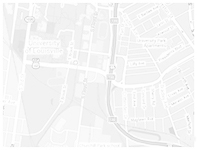UofL Students, Graduates, and Contact Tracing
UOFL STUDENTS AND GRADUATES DOING CORONAVIRUS CONTACT TRACING
By Stuart Esrock, Ph.D.
One of the most important factors in reducing the toll of COVID-19 and halting its spread will be contacting those who have the illness and then warning those with whom they have been in contact. It’s called “contact tracing,” and UofL is involved in the effort.
The Dean of the UofL School of Public Health and Information Sciences, Craig Blakely, said “In short, what we are trying to do in absence of a vaccine, is shift from our broad-focused state-wide stay-at-home strategy to one where we more aggressively isolate those who are positive and those who have been in contact with them. If we can stop spread at points of contact, then the rest of us are more free to move about—practicing physical distancing, etc.”
Blakely said the School of Public Health is actively involved in city and state contact tracing efforts. “We believe that our students would be great team players in this setting. They have a great foundation and can easily get trained up for these jobs. It would be a great experience for them and a huge resume builder. Some can get practicum or capstone experience credit for doing this.”
Already, some current and former UofL students are doing volunteer contact tracing work. Delana Gilkey will graduate this December with a Master’s in Public Health. The Louisville native volunteered to work with the Louisville Metro Department of Public Health because she wanted to make a difference in her community. “I felt that sharing news articles or writing posts, judging and telling other people what to do via social media, wasn’t making a difference or helping at all. Instead, if anything, it was only bringing to light the inequalities between communities of high socioeconomic status and low socioeconomic status. As a result, I became very intrigued with educating myself on the coronavirus, and I began to feel a constant tug that I should be doing something more to help.”
Delana Gilkey
For Eriqc Lumzy, volunteering to do contact tracing work embodies how he feels about his Public Health major. Lumzy, who hails from Richmond, Virginia, just completed his BA degree. “I am passionate and eager to get involved with public health. I saw this as a great opportunity to have a direct impact on a once in a lifetime pandemic.”
Eriqc Lumzy
Gilkey said her contact tracing work has been equally gratifying, humbling, and frustrating. “I have had an incredible opportunity to be able to comfort people who have tested positive and provide support to families who have lost a loved one to the coronavirus. I have also had encounters with individuals who were skeptical that I was really with the local Health Department and didn’t want to share any information or refused to comply to isolation orders. But being able to just provide a listening ear and having the chance to educate callers and answer their questions feels like I’m contributing and we’re making progress. As a result of being able to help during these tough times, I have learned so much. I’m eager to keep this momentum.”
Likewise, Lumzy thinks he is having a vital impact on the community. “It feels great knowing that I can take part in saving countless lives and helping us get back to somewhat of a normal life. Prior to volunteering, I assumed that because of the wide spread news coverage, everyone knew how serious COVID-19 was. The lack of knowledge became apparent within my first day of volunteering. I was proud to be providing life-saving information.”
Gilkey has learned an important sense of empathy through her work, and also the importance of critical thinking. “Being able to sympathize with other people during this time is crucial. It can be as easy as providing a listening ear or helping hands. This experience has also proven that it is important to do your own research, to read credible articles that not only interest you but that you also understand so that you are able to understand the impact the coronavirus can have, and to form your own opinion. Most importantly, if you feel a continuous tug to get involved, you should follow that feeling and try to help out where you can.”
For Lumzy, the experience has brought a recognition of what our community desperately needs. “This experience has changed my perspective on the inequalities of resources that make minorities more susceptible to diseases and outbreaks.”
While the current contact tracing work is being done at the city and state level, Dean Craig Blakely from the School of Public Health notes that UofL is going to undertake a parallel effort. “We are engaged in planning. I presume public health students will be in the middle of all of this. Of course, A&S, social work, nursing—all could be engaged as well. It’s important work.”
Indeed it is important work and we can all be thankful, and grateful, that UofLers like Delana Gilkey and Eriqc Lumzy are involved. If you know of UofL students doing important work in our community as we battle coronavirus, please send an email so we can highlight their story.



